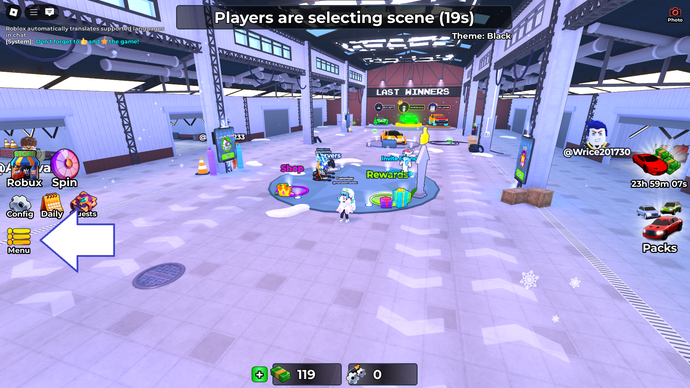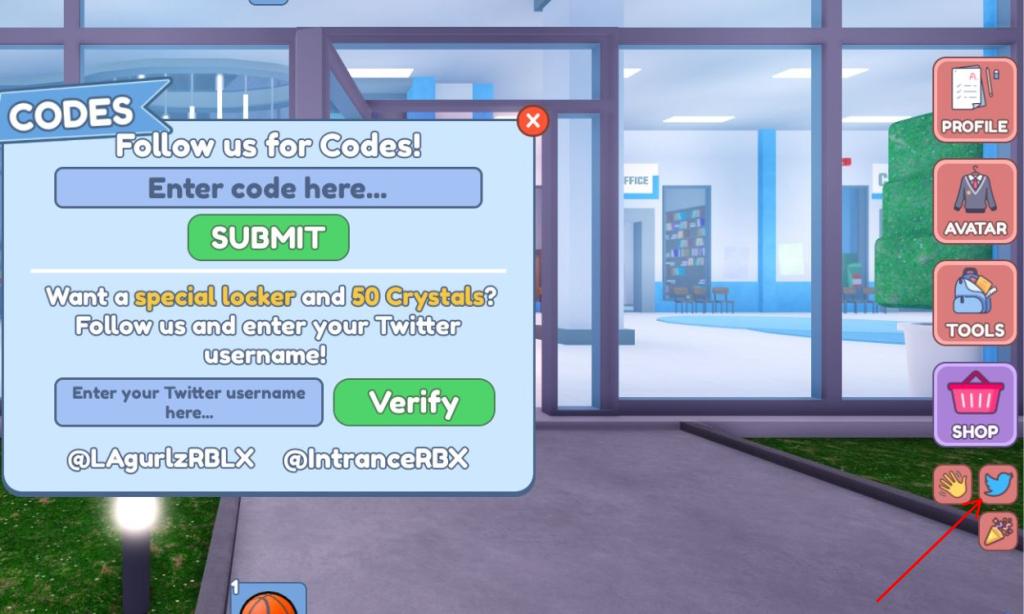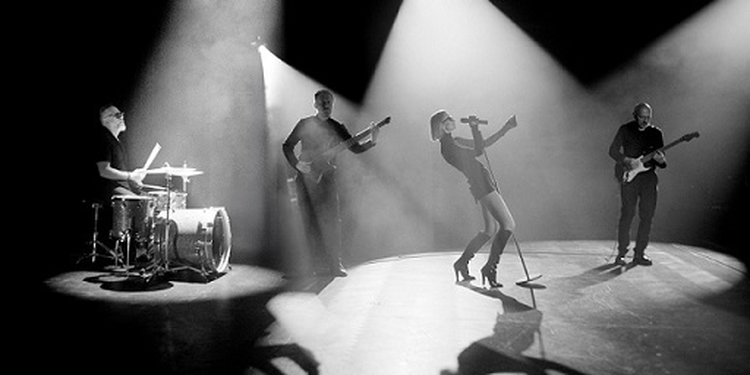Massively multiplayer superhero game City of Heroes celebrated its 20th anniversary this year. It’s definitely showing its age — it’s a somewhat archaic, chaotic game in which players make their own Silver Age-style comic book heroes and villains and run, fly, surf, and warp around the basic metropolis of Paragon City. But you can inactive log in and play it, and be part of its tiny but passionate community.
In itself, this is nothing unusual. World of Warcraft besides celebrates its 20th anniversary this year; EverQuest, the game that inspired WoW, has been in continuous operation for 25 years; Ultima Online has changed hands a fewer times, but has been moving since 1997. Provided adequate players become profoundly invested in these online worlds, they’re predisposed to last. Even if the first developer or publisher loses interest, individual else can frequently be found to take on the server costs and collect the subscription fees.
This week on Polygon, we’re exploring how superheroes are dominating not just comics and movies, but all media, in a peculiar issue called Superculture.
But City of Heroes’ communicative is different. Publisher NCSoft shut the game down in 2012, and resisted determined efforts by fans and the game’s own developers to keep it online. For six years, City of Heroes remained unplayable, and its bereft community had nowhere to go — although there were rumors of illicit playable servers.
But then, in 2019, the game’s origin code leaked more widely, and a number of fan servers sprang up. 1 of these, called Homecoming, rapidly established itself as the biggest and most professionally run, and in January 2024, NCSoft amazed everyone by granting the group behind Homecoming a licence to operate the game.
This completed an unprecedented resurrection. Almost 12 years after its demise, City of Heroes was officially back. This is the communicative of a game, and a community, that refused to die.
‘I played it religiously for years’
City of Heroes: Homecoming may have an authoritative licence and around 30,000 monthly active players, but it’s inactive effectively a not-for-profit fan project, sustained by donations. The squad that runs the game uses pseudonyms in public (a precaution taken to avoid community drama spilling into the real world). Over email, I talked to Widower. “Trying to summarize any of our jobs in a fewer words is difficult,” he said, but described himself as “a kind of community manager” who had started out as a game master on the team. Widower took his alias from his favourite villain character in the game, Ghost Widow, “a ghost who can’t decision on due to the untimely circumstances of her death.” In real life, he works in charity fundraising; most of the squad works in IT or related fields.
Widower said that the Homecoming squad has a wide variety of experience with City of Heroes. any played it from launch; others’ first experience of the game was the Homecoming server. Widower started playing City of Heroes around 2007 or 2008, erstwhile the game was just entering its second act. first developer Cryptic Studios had moved on to make a Marvel-branded MMO, and sold City of Heroes to NCSoft, which poached respective Cryptic staff to form a fresh developer, Paragon Studios, to run the game. (The Marvel game was canceled, and yet morphed into CoH rival Champions Online.)
Also joining Paragon Studios around that time was marketing lead and erstwhile fan Hosun Lee. Lee had done a business school course in the early 2000s taught by Jack Emmert, an first designer on City of Heroes, who was working on the game at the time and talked to the class about it. “Two years later, the game came out,” Lee told me on a video call, with a screenshot of a throng of City of Heroes players as his background. “It was like, Oh my God, I remember this game. And so it was actually the first MMO I always played. […] I played it religiously for years. I almost got fired over it once.”
Lee, who had previously worked at businesses like IBM and Intel, found life at Paragon “very chaotic.” It was a squad of about 70 people, about 60 of whom worked straight on the game; there was besides a community management team. “I handled beautiful much everything else,” Lee said. “Marketing, advertising, retention programs, monetization, PR.”
City of Heroes wasn’t a immense hit, although it was profitable. “It always paid the bills and then some,” according to Lee. But it competed with 2 somewhat younger games, Champions Online and DC Universe Online — and, as it turned out, the marketplace for superhero MMOs had its limits. “One of the things we learned very rapidly is the superhero marketplace has a fixed audience size,” Lee said. “They just went from 1 superhero MMO to another. […] It’s the exact same number of people. It’s just now they’re distributed among 3 games.”
This wasn’t adequate for NCSoft. “I think NCSoft at the time had ambitions to be larger, a lot more grandiose in the West,” Lee said. (NCSoft declined to comment for this story.) Inspired by World of Warcraft’s massive success, the Korean publisher of Guild Wars and Lineage was readying an costly WoW competitor, WildStar. In 2011, Paragon put together a successful free-to-play relaunch for City of Heroes, which brought back many players and helped energize and reorganize the studio. But the following year, NCSoft decided to shut the game down.
‘It felt like we had lost a part of ourselves’
At Paragon, there had been a frantic effort to stave off the shutdown. “A group of us spent most likely a solid month, period and a half doing everything we can to effort and save the studio and the game,” Lee said. “Everything from ‘Can we scale things down?’ to ‘Can we spin the studio off?’ There was even an thought to do a Kickstarter.” But NCSoft would not budge, and it went ahead and announced the closure of the game and the studio.
However, it hadn’t anticipated the strength of feeling among the City of Heroes community. There were in-game protests, and a petition to keep the game alive reached over 16,000 signatures. “There was a point erstwhile it almost tipped over,” Lee remembered. “The player reaction was a lot more intense than I think NCSoft realized. And so that actually forced NCSoft to go back to the negotiating table. […] Unfortunately, evidently it didn’t work out.”
City of Heroes was turned off at midnight, Pacific time, on Nov. 30, 2012. Like many players, Widower was online at the time, saying farewell to the game that had meant so much to him. “I was on the Beta server on the night of shutdown, which happened to be the last server to go down; around 18 minutes after everything else,” he said. “LFG [the main chat channel] in those last fewer minutes was, as you’d expect, partially funereal, but there was inactive that irreverent humor that characterizes MMO communities all the way to the end. It was very surreal!
“For so many of us, uncovering out the game was shutting down hurt in ways we couldn’t have expected,” Widower said. “Many of us built communities, lifelong friendships, and in any cases marriages and families through the game and had never considered the anticipation that it could 1 day disappear. It felt like we had lost a part of ourselves or our second home.”
Now homeless, the City of Heroes community fragmented. According to Widower, most chose not to jump to the game’s apparent superhero rivals; many CoH players had a “personal distaste” for Champions Online, he said, whereas DC Universe Online was “too grindy, not adequate customization.” Many ended up playing another Cryptic game, Star Trek Online, gravitating to the ever-popular WoW, or giving up on MMOs altogether.
Some half-functioning alternatives to the full City of Heroes experience cropped up, like Paragon Chat, a version of the game with no content that inactive allowed players to socialize as their heroes. “In the immediate aftermath of the shutdown, I spent a bizarrely large amount of time playing around with Icon, the hack to make the character creator accessible even without a server,” Widower said. Like many members of the community, he had a feeling that City of Heroes couldn’t and wouldn’t stay dead forever. “I always figured I would just wait until the game came back yet — though I did not anticipate to be part of that myself!”
‘Oh shit, there’s a Fight Club’
Hosun Lee said he first started proceeding rumors of a full playable City of Heroes server 3 or 4 years after the 2012 shutdown. “I guess there was kind of like a Fight Club rule,” he said. “You don’t talk about Fight Club.” The code of silence didn’t hold, though, and a fewer years later, word got out. “Somebody did talk about Fight Club. Then, erstwhile people found out, it’s like, Oh shit, there’s a Fight Club.”
In April 2019 it was revealed that a private server had been in operation, in secret, for years. Many in the CoH community were incensed at being left out, but the controversy led to widespread distribution of the game’s origin code and the establishment of multiple publically available fan servers. “A lot of people, any of us among them, were very angry that the game had been hidden from them for six years, as was their right,” Widower said. But a nucleus of fans that would shortly become the Homecoming squad “thought differently,” he said. “While the circumstances surrounding the leak were not what anyone would have wanted, we recognized the chance to bring the game back for real, and immediately started working towards that goal.”
Widower said the Homecoming squad came together within days that April through an organic cascade of introductions: “A couple of people who had the cognition and resources to run a server got together, and they got introduced to individual who knew how to handle community projects, and individual who knew how to handle the legal and financial aspects, and any people who knew how to handle the mess of the code. They picked up a couple volunteer game masters (among them myself) and off to the races we were! The community came along afterwards — we were beautiful much the only [public] server in town for a fewer weeks there, so people came and never left.”
Many fans in the community were tense about investing time in servers that had a dubious legal right to exist. Surprisingly, the Homecoming squad wasn’t worried. “Quite the contrary,” Widower said. “We were in contact with NCSoft from day 1 in pursuit of having a friendly, stable, and long-term version of the game for everyone to enjoy, and we believed that working with NCSoft was the only way to make this possible.” A bigger concern was just keeping the server on its feet. “It was absolute chaos,” he said. “Of course we expected quite a few people would want to play, but I don’t think we realized we would have so many players on at erstwhile that the servers were struggling to keep up. We had very small time to learn, scale, and optimize. […] It helped that, in spite of never having met before, everyone on the squad got on very well together and besides was very willing to obliterate their sleep schedules.”
Homecoming was far from the only large unofficial City of Heroes server — another, Freedom, is inactive going — but it had a first-mover advantage and rapidly amassed the biggest community. Yet Widower reckons it was the Homecoming team’s professionalism that won it the authoritative licence from NCSoft. “I don’t know how acquainted you are with private servers in general, but they tend to be full of drama,” he said. “While we can’t control what anyone else does, we have tried to run Homecoming as if we were a real studio moving a real MMO, with all the strictures that entails. I know quite a few our players feel safe in the cognition that the server won’t implode due to interior conflict.”
“We have tried to run Homecoming as if we were a real studio moving a real MMO”
— Widower
The squad were useful coders, too. What the Homecoming squad has done with City of Heroes is “mind-bogglingly impressive,” according to Lee, compared to what Paragon’s squad of professional developers managed. “We had a dedicated squad of people who lived the code, who were being paid to do that. And honestly, I think we inactive barely kept things going. The game is [made of] what people call spaghetti code — it’s years and years of improvement on top of each other, so nobody knows what anything does anymore. And that was hard adequate erstwhile we had access to the origin code. To find out that there’s a group of amateurs who, I guess, reverse-engineered it and are able to add things into the game that we [never could was amazing].” Lee cited the Homecoming team’s addition of asymmetrical costumes, a community ask the Paragon squad had never been able to figure out how to deliver.
It inactive took NCSoft years to agree to grant Homecoming an authoritative license. No money changed hands; according to a FAQ on the license, Homecoming is “not required to pay any up-front or recurring licence fees.” Lee thinks the publisher’s decision was generous, unusual, and highly significant. “I was surprised, and it’s not due to the fact that I have any sick will towards NCSoft,” he said. “At least from the outside, they get nothing out of doing this. The easiest thing for them to do would’ve been to just ignore the grey servers, possibly send a couple cease-and-desists. That’s little work, little money involved. But the fact that they decided, Hey, we’re going to do something that beautiful much nobody else would think of doing, which is give you guys a license… It made me feel great, actually.”
‘We’re besides stubborn to let it die’
The tale of City of Heroes is a uncommon heartwarming communicative to come out of the mercenary planet of live-service games, where the hard work of game developers and the passion of game communities is so frequently snuffed out at the whim of business calculus. It says a lot that NCSoft has been willing to work with the game’s community to keep it alive, but this would never have happened without that community’s dedication and perseverance. And that, in turn, is all the more remarkable erstwhile you consider that City of Heroes was offline for so long, and that it had never been a peculiarly large game — or even a very accomplished one.
Lee attributes City of Heroes’ remarkable stickiness to 2 things: the “nearly infinite possibilities” of its character creator and, paradoxically, its unbalanced, janky game design. These combined to make possibly the perfect sandbox for superhero want fulfillment, which in turn attracted a highly engaged and welcoming community, which morphed it into “a lot more of a social game versus a combat game.”
“We found that so many of our players spent a good chunk of their time just in the character creator alone,” Lee said. “And then erstwhile you left the character creator… Combat in the game is so broken! due to the fact that the people who made the game, this was the first MMO they always made, so they didn’t truly think about scaling, or balance, or definitely not PvP at all. And so what people found was this is simply a game where you live out your power fantasies, where you do the broken things that no sane game designer would always implement. But these are people who didn’t know that, so this is simply a game where you can fly, you can summon 30 different minions, make atomic explosions, and then go to a virtual rave right afterwards.”
“There’s quite a few things CoH has going for it that another games don’t,” Widower said. “The first setting, the unique and complex approach to gameplay and character power, the endless possibilities for self-expression, and possibly most importantly a community that is famously 1 of the friendliest in MMOs.” That point about self-expression has been key, Lee agreed. “The thing [fans] kept expressing to me the most consistently was just, it allowed them to express themselves. [They had] the ability to express interest in different communities that possibly they didn’t feel comfortable doing so, or just being who they are.”
If a game creates a place where players can more full be themselves, then those players are liable to cling on to that game like their life depends on it. “Really, City of Heroes refuses to die due to the fact that we won’t let it die, due to the fact that we’re besides stubborn to let it die,” Widower said. “Because we’re besides stubborn to die. due to the fact that we believed. And I feel very privileged, as I think everyone at Homecoming does, to have played a part in vindicating that belief. City of Heroes remains.”




















